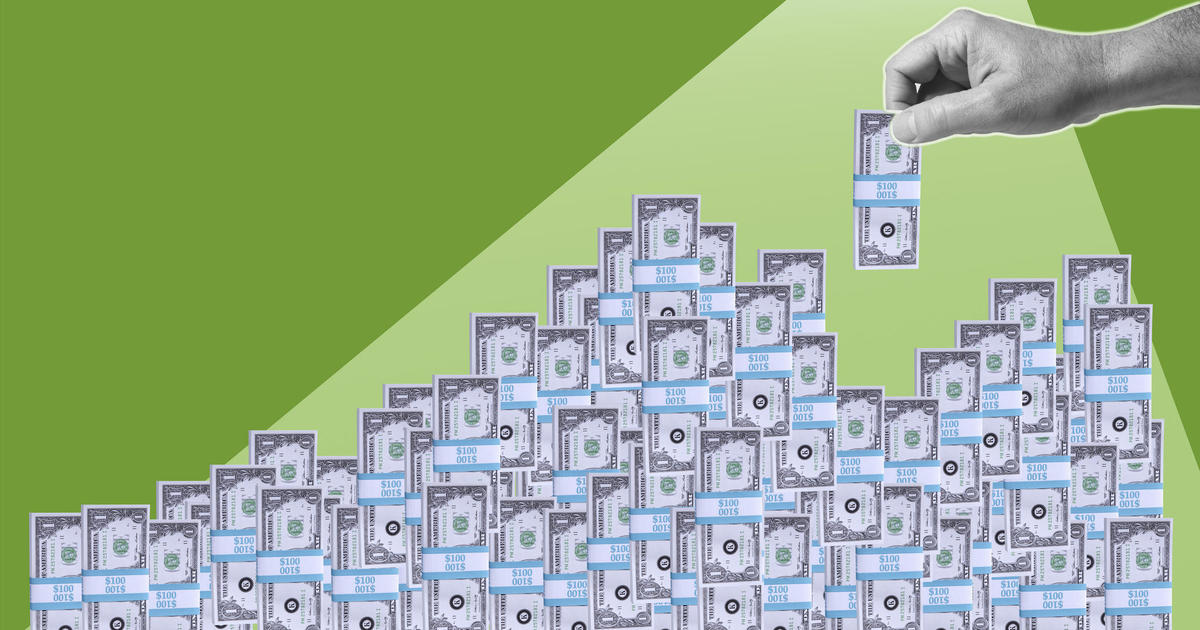Furloughed worker living paycheck to paycheck: "I have $1.06 in my bank account"
One paycheck from peril, Sigrid Layne, a furloughed federal worker, now faces a more urgent reality.
"As of today, I have a dollar and six cents in my bank account," Layne said. "It's very terrifying when you look at your bank account, you have no money coming in, you don't know when you're going to get your next paycheck, and you're like, 'What do I do?'"
So far, her answer? Get groceries at food banks and sell things off her own shelves.
"Anything that I can sell that anybody would want to buy because, as I said, I have not been able to get another job," Layne said. "If someone wants to buy it, they can buy it. That's just how desperate I am."
So desperate, Layne now fears losing her home. She said she just bought a new house and can't make her first mortgage payment.
The Senate will vote on competing bills to reopen the government on Thursday, though neither is expected to pass, as nearly 800,000 federal workers face down missing their second paycheck on Friday.
According to a career survey, almost 80 percent of Americans live paycheck to paycheck and most government employees don't go into their line of work to get wealthy; they do it to serve the public. As CBS News' Ed O'Keefe reports, an increasing number of them say they don't think they can afford to keep their government jobs.
Sigrid Layne isn't alone. After a 16-day government shutdown in 2013, 64 percent of federal workers said they had less than two weeks' worth of savings set aside. On the day before payday, about 20 percent of them had less than a day's worth of spending money in the bank.
"In the last 40 years, we've had growing inequality in this country, and many families, many workers have barely seen their wages and incomes rise. So it's become increasingly difficult for them to pay for their basic expenses, like housing and food and childcare," said Elisa Gould, senior economist of the Economic Policy Institute.
It's a challenge facing furloughed workers like Jessica Appel, an executive assistant at the Department of Transportation.
"Making sure now that we have enough groceries in the house, that paycheck-to-paycheck is everything for a small family like ours," Appel said.
Because she's a contractor, Appel won't receive any back pay when the government reopens. Already facing a stack of unpaid bills, Appel found out when she went to the doctor that she and her 2-year old son, Chase, lost their health care.
"When I arrived, I was informed that my health insurance wasn't eligible, so I had to make the decision of paying out-of-pocket," Appel said.
So Jessica's boyfriend took a second job at night and she started a GoFundMe campaign – one of about 3,000 for federal workers – that have raised more than $1.3 million. Meanwhile, Sigrid Layne is still stuck.
"I went outside to start up my car, and my battery was dead … and the money that I had to pay for groceries, I had to pay for a car battery yesterday," Layne said. "What am I going to do? … It took everything I had."
At one food distribution center in Washington D.C., foot traffic is up about 20 percent this month at the area food banks they serve. They're on track to serve more than a half a million more meals this month than a typical January, all because of the shutdown.



